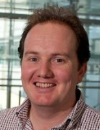Other Track AgendasAcademic Drug Discovery | Antibodies in Drug Discovery | Epigenetics in Drug Discovery | Stem Cells in Drug Discovery |

Monday, 6 March 201708:00 | Registration | |
Session 1 | | Session Chair: Stuart Conway, Professor, University Of Oxford, United Kingdom |
| | 09:00 | Probing the Epigenome for Therapeutic Opportunities
Cheryl Arrowsmith, Chief Scientist, University of Toronto, Canada
| 09:30 | | 10:15 | Targeting Homologous Recombination Repair In Cancer: Structure-Based Drug Design On A New Histone Reader
Anja Groth, Group Leader, University of Copenhagen, Denmark
We have identified the TONSL–MMS22L homologous recombination complex as a reader of histone H4 tails unmethylated at K20 (H4K20me0). Targeting of the TONSL histone reader domain thus offers a unique opportunity to target homologous recombination in cancer therapy. | 10:45 | Coffee & Networking in Exhibition Hall | 11:15 | Mechanism-Based Therapeutic Targeting Of Epigenetic Abnormalities In Solid Tumours: Clinical Update And Future Directions
Sophie Postel-Vinay, Group Leader, Institut Gustave Roussy, France
This talk will provide key notions about targeting defects in chromatin remodeling using synthetic lethality or epigenetic antagonism, with the results of two clinical trials in which our unit was involved as an illustration. The rationale for using combinatorial approaches, notably with immune therapies, will also be discussed based on current available literature data. | 11:45 | Protein Methyltransferases and Drug Discovery
Ann Boriack-Sjodin, Senior Director, Protein & Structural Sciences, Epizyme, United States of America
Optimization of novel, potent, and selective inhibitors of SMYD3, the effects of these compounds on cancer cell lines and comparison enzymatic inhibition with gene ablation technologies. | 12:15 | Fragment-Based In Silico Discovery Of Potent And Selective Bromodomain Inhibitors
Amedeo Caflisch, Full Professor, University of Zurich, Switzerland
We have identified by docking and validated by binding assays and X-ray crystallography several fragments with favorable ligand efficiency for six human bromodomains. Some of these hits have been optimized into nanomolar lead compounds by computer-aided structure-based design. | 12:45 | Lunch & Networking in Exhibition Hall | 13:00 | Poster Viewing Session | |
Session 2 | | Session Chair: Udo Oppermann, Principal Investigator, University of Oxford, United Kingdom |
| | 14:15 |  Technology Spotlight: Technology Spotlight:
Exploring the Function of Bivalent Epigenetic Inhibitors in Living Cells
Danette Daniels, Group Leader, Promega Corporation
Here we present studies on two different types of bivalent BET family inhibitors, bi-BET, a novel inhibitor which can simultaneously inhibit two bromodomains, and dBET1, an inhibitor which promotes degradation of BET family members via interactions with Cereblon E3 ligase.
| 14:30 |  | Keynote Presentation Chemical Probes for Epigenetics
Dafydd Owen, Associate Research Fellow, Pfizer Ltd, United States of America
The talk will review all of Pfizer’s chemical probes for epigenetics discovered in collaboration with the Structural Genomics Consortium.
|
| 15:15 | Advanced Chemical Genetics for Epigenetic: Bump and Hole and PROTAC Approaches
Alessio Ciulli, Professor, University of Dundee, United Kingdom
I will describe my lab’s development of chemical genetics bump-and-hole and PROTAC approaches to achieve single target selectivity of chemical probes for BET bromodomains, epigenetic readers of lysine acetylation. | 15:45 | Coffee & Networking in Exhibition Hall | 16:15 | Discovery Of Low Nanomolar, Selective And Cell Permeable ATAD2 Bromodomain Inhibitors
Emmanuel Demont, Director, GlaxoSmithKline, United Kingdom
This talk will describe how we identified a highly selective and potent chemical probe for the ATAD2 bromodomain from a weak unselective hit, with a particular focus on how we gained BET selectivity and cell permeability. | 16:45 | Quantitative Interaction Proteomics for Epigenetics
Michiel Vermeulen, Professor, Radboud University, Netherlands
In his lecture, Michiel Vermeulen will present data on a recently identified and characterised chromatin 'reading' complex that is involved in breast cancer. This complex may be an interesting target for epigenetic drugs. | 17:15 | Restoring of Innate Immune Tolerance With a Small Molecule
Hendrik Stunnenberg, Professor, Radboud University Nijmegen, Netherlands
| 17:45 | Drinks Reception in Exhibition Hall | 20:00 | Conference Dinner in Hinxton Hall | 22:00 | End of Day 1 |
Tuesday, 7 March 2017 |
Session 3 | | Session Chair: Oleg Fedorov, Team Leader, University of Oxford, United Kingdom |
| | 09:00 | Bromodomain Drug Discovery
Andrea Cochran, Principal Scientist, Early Discovery Biochemistry, Genentech, United States of America
The Constellation-Genentech bromodomain probe discovery platform will be described. These chemical probes have been used to interrogate the functions of bromodomain proteins and assess their potential as therapeutic targets. | 09:30 |  | Keynote Presentation Translating Chromatin Biology into Therapeutics
James Audia, Chief Scientific Officer, Constellation Pharmaceuticals, United States of America
|
| 10:15 | Chemical Tools To Investigate Chromatin Methylation
Udo Oppermann, Principal Investigator, University of Oxford, United Kingdom
| 10:45 | Coffee & Networking in Exhibition Hall | 11:15 | Seeking Potent Selective and Cell Penetrant KDM4-Subfamily Inhibitors
Julian Blagg, Deputy Director, Cancer Research UK Cancer Therapeutics Unit, The Institute of Cancer Research, United Kingdom
This talk will describe our structure-based design approach towards the identification of potent JmjC histone demethylase inhibitors based upon the pyrido[3,4-d]pyrimidin-4(3H)-one scaffold which demonstrate potent and selective biochemical affinity for the KDM4 and KDM5 subfamily demethylases over the KDM2, KDM3 and KDM6 subfamilies and describe their cell-based activity profiles. | 11:45 | Targeting Epigenetic Reader Domains Using Medicinal Chemistry And Chemical Biology
Stuart Conway, Professor, University Of Oxford, United Kingdom
| 12:15 | Targeting PRC2 and Chromatin in Cancer
En Li, Head of Biomedical Research, Novartis Institutes for BioMedical Research Inc, United States of America
This presentation will present evidence that EED226 inhibits PRC2 activity via an
allosteric mechanism and provides an opportunity for treatment of PRC2-dependent cancers. | 12:45 | Lunch & Networking in Exhibition Hall | 13:00 | Poster Viewing Session | 14:25 |  Technology Spotlight: Technology Spotlight:
Active Motif's New Advances In Epigenetics Research
Sarantis Chlamydas, Product Manager of Epigenetics Services, Active Motif
| 14:30 |  | Keynote Presentation Small Molecule Inhibitors of an Epigenetic Eraser Family
Danica Fujimori, Principal Investigator, University of California, San Francisco, United States of America
Selective small molecule regulators of epigenetic protein families have a potential to profoundly impact our understanding of chromatin-mediated processes in physiology and disease pathogenesis. This talk describes our efforts aimed at development of inhibitors of histone demethylases.
|
| 15:15 | The Development Of non-BET Bromodomain Chemical Probes
Phil Humphreys, Senior Scientific Investigator, GlaxoSmithKline, United States of America
This talk will describe the development of a bromodomain inhibitor discovery platform at GlaxoSmithKline and its application to the development of a PCAF/GCN5 bromodomain chemical probe. | 15:45 | Coffee & Networking in Exhibition Hall | 16:15 | Chemical Biology Tools for Target Identification and Validation
Kilian Huber, Principal Investigator , University of Oxford, Structural Genomic Consortium (SGC), United Kingdom
This talk will focus on recent progress in the development of chemical biology tools to probe human bromodomain-containing proteins. | 16:45 | Development of JmjC Histone Demethylase Inhibitors
Akane Kawamura, Research Fellow, University Of Oxford, United Kingdom
Our recent progress in the development of highly selective and potent cyclic peptide inhibitors against KDM4 subfamily will be described. | 17:15 | Close of Conference |
|

 Add to Calendar ▼2017-03-06 00:00:002017-03-07 00:00:00Europe/LondonEpigenetics in Drug DiscoverySELECTBIOenquiries@selectbiosciences.com
Add to Calendar ▼2017-03-06 00:00:002017-03-07 00:00:00Europe/LondonEpigenetics in Drug DiscoverySELECTBIOenquiries@selectbiosciences.com